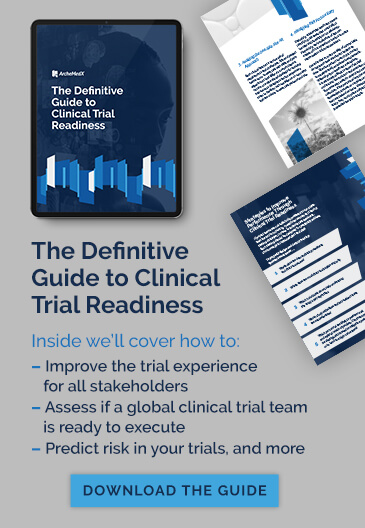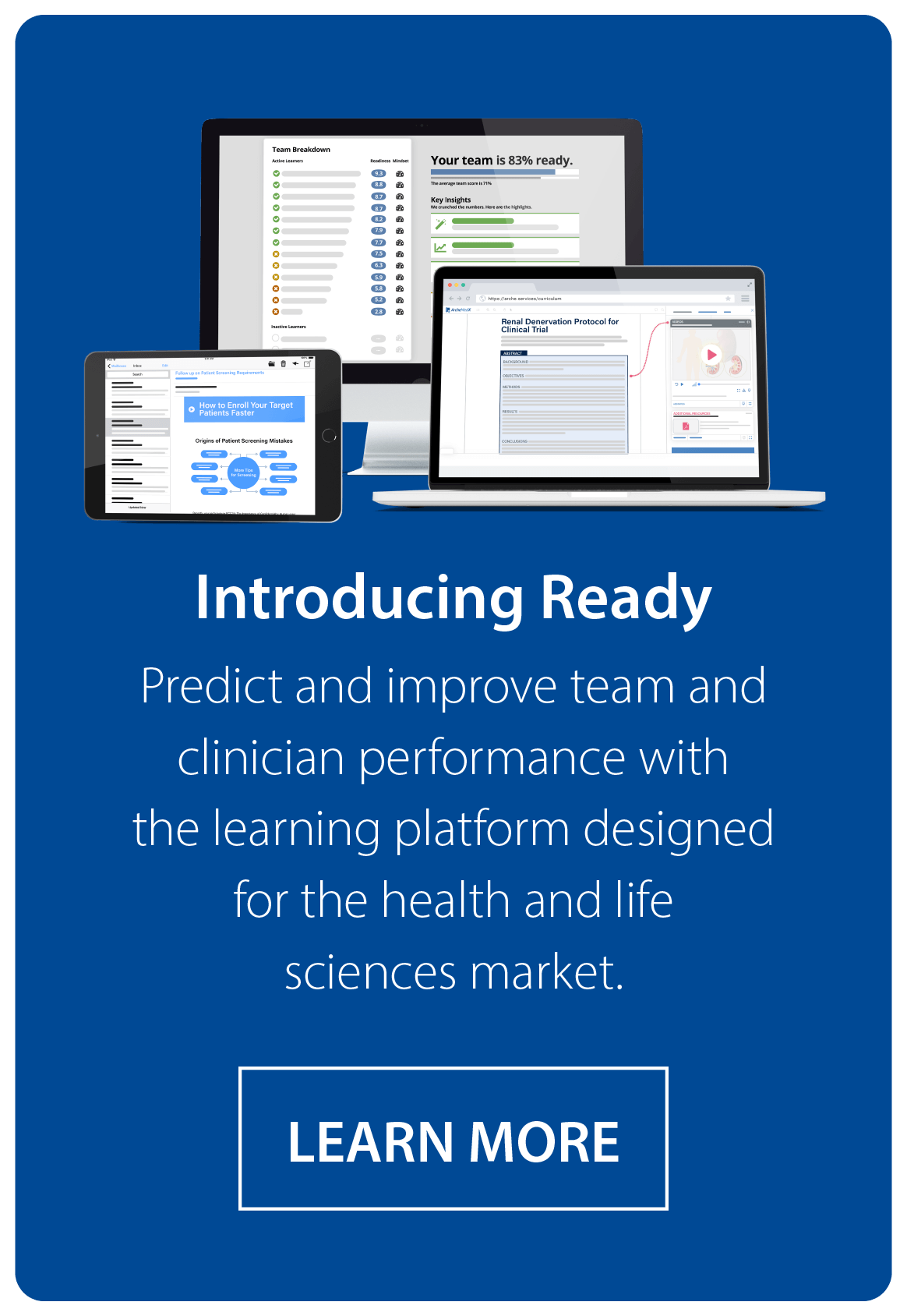You have a clinical trial starting soon. Are you working with a contract research organization, or at least planning to do so? Probably. In 2020, the ACRP estimated that 70% of clinical trials would involve sponsors working with CROs. And, as a result, 100% of those sponsors will encounter some mix of problems.
Sponsors outsource for many reasons – to reduce costs and IRB cycle times, to improve efficiency by working with CROs who seem to have well-honed processes, or to increase the likelihood of regulatory packet approval. Working with CROs – without doubt – can be an excellent way to manage your clinical study.
But there are always challenges, and they can be expensive, frustrating, and risky. Fortunately, most CRO related issues can also be prevented.
We’ll explore 5 of the most painful – and most common – problems in this article. Plus, we’ll highlight actionable steps to overcome them. They include:
- Losing control of the clinical trial project timeline
- High turnover at the CRO
- General vs. therapeutic expertise in CRAs and project team
- Competition for CRO resource time
- Lack of transparency
Losing control of the clinical trial project timeline
What is the largest contributor to clinical trial cost creep? Hands down, it’s delays. And most delays are preventable.
Many sponsors report that their CROs don’t (and possibly can’t) take into consideration all the risks and realities of the study during scoping. Therefore, delays are inevitable – and as timelines stretch, costs increase.
You may hope your CRO will “make up the time somewhere else” but that’s unrealistic in most cases. Plus, it typically involves additional resources and unplanned additional expenses.
Prevent problems when you’re working with CROs by:
Understanding where your risks lie – as early as possible. Detail in your project plan is key. Look at each task and break them into smaller subtasks to identify possible risk areas.
However, it is entirely possible that your greatest risks will be human. This is why using the clinical trial readiness model to improve trial performance is so impactful. Also, using a learning and predictive analytics platform, like Ready, is a great way to assess how capable your clinical trial resources actually are.
When you are running a traditional study and need to evaluate the CRO’s team, your own trial team members, and your sites, you can reduce onsite remediation time and CRA hours drastically with clinical trial readiness. And in decentralized trials with patients, caregivers, and home health staff now responsible for conducting trial activities, using a digital tool like Ready is even more important to reveal exactly where your human capital could struggle.
Taking a more proactive step before your first patient is enrolled will slash the likelihood of delays and keep your CRO resources on track for success.
High turnover at the CRO
Managing CRO resources is hard enough, but the longer the project, the more that risk of turnover creeps in. In fact, ACRP quoted a recent study showing CRA turnover to be higher than 21% despite the pandemic.
With every staff member loss, you can expect delays. Delays due to fewer available resources, delays due to higher workload, and delays due to onboarding a replacement. Delays cost money, and they impact timelines and performance.
Prevent problems related to CRO turnover by:
Preparing for turnover. You can’t stop CRAs, PMs, and other team members from leaving, though you can select CROs with higher employee retention and negotiate key employee provisions in your CRO contract. However, turnover is inevitable – even at the best run organizations and with the most iron clad contracts. So it’s better to prepare yourself for it.
Sponsors using Ready when working with CROs follow a few best practices to safeguard against turnover-delays. These include:
- Requiring all CRO team members to complete the same project training, regardless of when they join the trial.
- Defining how you’ll approve the addition of new/replacement team members – an example being that replacements must demonstrate that they are sufficiently ready for conducting the trial.
- Outlining who incurs the cost of delays related to turnover in the contract.
General vs. therapeutic expertise in CRAs and project team
When you have the luxury of in-house clinical trial resources, you tap into staff who have a deeper understanding of your therapies and the journey to get them to trial. But that’s not always how CROs staff your project.
Some CROs work hard to place resources that have specific skills or experience on each project, but not all do. Plus, many CRO resources have gained much of their experience on-the-job. Some CRAs you work with may have broad expertise, but lack therapeutic area depth.
For some research, that’s no problem. But in more complex studies it could drag out study startup. The CRO staff could struggle to consume your materials. You could experience lower-quality deliverables. Or worse, encounter more errors during the study due to lack of preparation or critical thinking skills.
Prevent problems when you’re working with CROs and their teams by:
Defining exactly what knowledge your CRO team needs to work successfully on your clinical trial. Your CRO will put forward resources for your project. The CRO believes they’re good enough, but it’s up to you to assess whether that team is up to your standards.
Some sponsors turn to a functional assessment of the trial team. This could be therapy-related, or include SOPs and skills gap analysis. Whatever you do to evaluate and better equip the team when working with a CRO can pay off big, especially if you use a proven platform like Ready to deliver the assessment and remediation. We found, for example, that clinicians who went through training using Ready were 2X more likely to use what they learned in the field.
A functional assessment can also do double work for you. Use your protocol and other trial materials and get some initial feedback before you provide them to your trial sites.
Competition for CRO resource time
When you’re working with a CRO, it’s important to remember that your team has other clients. The CRO resources you work with may have other projects and other responsibilities. But this leads to a common perception: the CRO is not putting enough time into the clinical trial.
Especially during the very early stages of your project, it’s difficult to get a true understanding of what the trial team is working on if you’re not communicating with them daily. And depending on your size – communication may be limited, too. Add to the mix CRA turnover, any reductions in the scope you initially wanted, and the natural disconnect between the bid and project teams, and you’ve got a recipe for delays and distrust.
Prevent problems when you’re working with CROs by:
Establishing simple ways to keep tabs on status. Whether it’s how far they’ve gotten through consuming your project’s protocol, or the status on site activation, your CRO works for you. Make it easy for them by demanding – upfront – that they commit to doing everything possible to remain transparent.
Often they have their own “reporting cadence” but that’s likely a vestigial process that is ripe for technological disruption. Have your own tools you like for project management? Get them onboarded. Need better visibility into things like CRA onboarding and investigator selection? Push them to include a tool like Ready in their processes.
Lack of transparency
And while we’re on the topic of communication, ask yourself: how much time are you (and your CRO) losing just because you’re using disparate tools? How much trust is lost between partners because of a failure to communicate?
When sponsors outsource research to CROs, they’re transferring the responsibility of running a lot of the day-to-day operations. But, as I explained earlier, they’re still responsible for the outcome. Without clear and transparent communication at every step, sponsors can become a bit, well, concerned.
Plus, CROs that use information systems and don’t provide access to the sponsor create trust issues. And worse, when a system is used but not regularly updated, trust declines.
You don’t have to struggle with these risks. Communication – and transparency – can be simplified in our current environment.
Prevent problems when working with CROs by:
Pushing your CRO to adopt technology and platforms that benefit you both. Whether it’s EDC, eCOA, or a clinical trial readiness tool, you will benefit. And the CRO will too – by developing skills and ways to accelerate your timelines (as well as other clients in the future).
One study we recently worked on involved a biotech and a CRO that had been manually creating slides based on essential study documents. When the CRO team discovered they could upload the actual protocol into Ready and create a more interactive learning experience without all the wasted time and effort, they were shocked at how much faster they could release the startup materials and measure how prepared the sites actually were.
This is just one example of where a sponsor was able to push a CRO to change, to mutual benefit. Reduce your own timelines, and know you’re helping the next trial, too.
CROs are only as good as you equip them to be.
Whatever the reason you have for outsourcing your research to your CRO partners, you’re making a major investment by trusting these companies with your therapy.
Even the smallest biotech companies have the power to impact the CRO’s performance. Be proactive by preparing the project teams, and demand transparency throughout your project. Technology like Ready makes it easy to do this today, and adopting processes and tools that support clinical trial readiness will ensure that working with CROs becomes one of the best parts of any research project.





